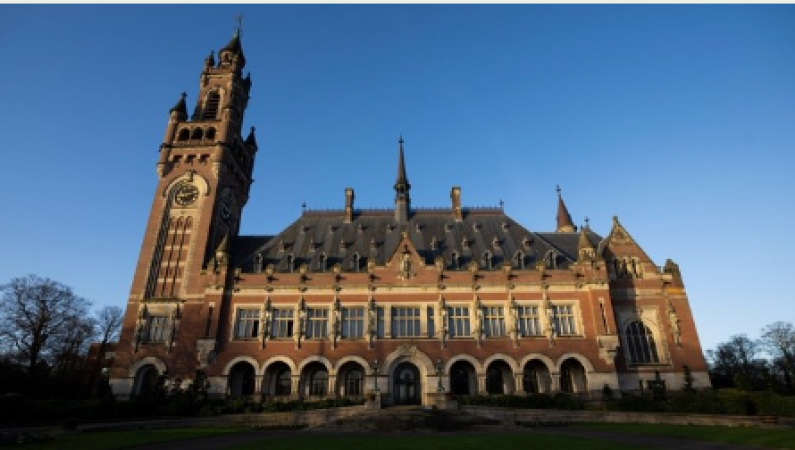
The Hague: Canada has been sued by Iran in the International Court of Justice for allowing victims of alleged terrorist attacks to seek compensation from Tehran, the top court of the UN reported on Wednesday.
According to Tehran, Ottawa's 2012 designation of the Islamic Republic as a state sponsor of terrorism was a violation of Iran's state immunity.
Iran asked the International Court of Justice (ICJ) in The Hague to order Canada to repeal a law passed the same year that permits victims to sue state sponsors of terrorism for damages in Canadian civil courts.
Iran stated in its submission to the court that Canada had violated its international obligations by adopting and putting into effect a number of legislative, executive, and judicial measures against it and its property. Tehran also asked Canada to pay compensation.
Also Read: US Economy's Momentum Slows: GDP Growth Dips to 1.5%, Predicted Further Decline in Q2
Iran's application refers to a 2022 Canadian court ruling that gave the families of six victims of Iran's nearly two-year-old airliner-shooting campaign more than $80 million in compensation.
On January 8, 2020, Ukraine International Airlines flight PS752 was shot down shortly after takeoff from Tehran, killing all 176 people on board, including 85 citizens and permanent residents of Canada.
Three days later, the Iranian armed forces acknowledged shooting down the Kyiv-bound plane "by mistake."
Iran also cited a 2016 decision made by a Canadian judge ordering the transfer of Iranian bank accounts and non-diplomatic land to those who had been the victims of attacks by Hamas and Hezbollah.
Also Read: World Bank Sounds Alarm: Global Growth Forecast Slashed to 2.9%, 'Severe' Recession Risks Loom
According to the ruling, $13 million was given to the families of Americans who perished in eight bombings or hostage situations that occurred in Buenos Aires, Israel, Lebanon, and Saudi Arabia between 1983 and 2002.
The families of Marla Bennett, who died in a suicide bombing at a cafeteria at Hebrew University in Israel in 2002, had successfully sued Iran in the United States, under the leadership of her parents.
Iran's ICJ filing stated that it "respectfully requests the Court to adjudicate and declare that Canada has violated its international obligations towards Iran by failing to respect the immunities of Iran and its property."
As relations soured over Tehran's support for Bashar Assad's regime in Syria, its nuclear programme, and its threats against Israel, Canada severed diplomatic ties with Iran in 2012.
In 2016, Iran filed a similar lawsuit at the ICJ against the US, requesting the unfreezing of assets that had been frozen by Washington to compensate victims of terrorist attacks.
Also Read: Surging Support: US Receives 20-Year High in Israel, Reveals Poll
Judges ruled that the United States had unlawfully seized funds from some Iranian companies and individuals in March, but they rejected Iran's request to release nearly $2 billion in central bank assets. After World War II, the ICJ was established to settle conflicts involving UN member states. Although it can take years, its decisions are final.